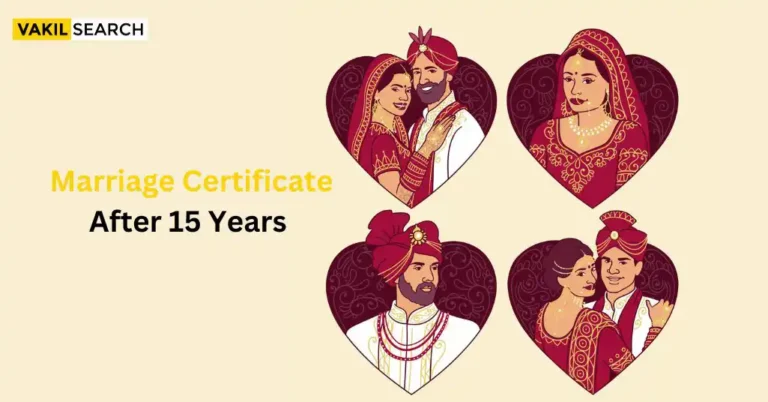Learn about registered marriage legal requirements, documentations, parents signature mandatory for a registered marriage. Read more!
Registered marriage rules not only protect both spouses’ legal rights but also align with the laws, which are prone to change over time. It makes it possible for couples to go abroad on a spouse visa, and a marriage certificate is required when applying for residency in another nation. (valium) Registered marriage rules provide the obligatory documents required by a bank or lending authority for couples who wish to buy a shared property or apply for a house loan.
What Is a Marriage Certificate?
A marriage certificate is a legal and valid document that establishes a couple’s marital status. This paperwork comes in handy when a husband or wife passes away unexpectedly, and you must prove your marriage. As a result, the Supreme Court declared it essential for a couple to register, regardless of their religious affiliation. Marriage is a solemn agreement between two individuals to spend the rest of their lives together and has distinct registered marriage rules.
Following the solemnization of the marriage between the bride and groom, certain prerequisites must be met for the marriage to be valid under Indian laws.
Due to India’s numerous traditions, it was difficult for the law framers to establish a proper procedure for marriage registration online and solemnization while considering that any rule or policy deemed to be adversely affecting any religious ritual is likely to attract widespread opposition.
Both civil and religious weddings have been recognized legally by the Indian legislation, whereas civil ceremonies are held in the marriage registrar’s office. The marriage certificates issued by the religious authority are acceptable under the Indian laws related to marriage. Couples who are Hindus, Jains, Sikhs, or Buddhists must get a marriage certificate from the local marriage registrar.
Adults of legal age do not require their parents signature for a registered marriage. Also, in India, same-sex weddings are not legally recognized yet.
What Are the Legal Requirements to Get Married in India?
The Hindu Marriage Act, 1955, and The Special Marriage Act, 1954, are two laws that fall under the Registered marriage rules, depending on your religion. The Hindu Marriage Act will be used to register the marriage if both couples are Hindus, Sikhs, Jains, or Buddhists, and the Hindu Marriage Act, 1955 only applies to marriages that have previously been solemnised.
Special Marriage Act comes into effect when one of the involved partners is Muslim, Christian, Jewish, or Parsi. If your partner is from another country, they must register under the Special Marriage Act. Within 30 days of being married, they must submit an additional No Impediment Certificate/NOC from the respective Embassy, together with their visa details, or their passport will be detained or cancelled.
The judiciary is responsible for ensuring that both the husband and wife’s rights are maintained. If the husband and wife’s union breaks down, it must be decided if the split was caused by one of the parties’ activities or not.
In 2006, the Supreme Court made registering your marriage in the country mandatory. While getting your marriage registered is extremely important, most people struggle with the process due to a lack of expertise and professional understanding.
What Do You Need to Get Married in India?
The documents you’ll need to get married in India can vary based on the marriage (under The Hindu Marriage Act, 1955 or Special Marriage Act, 1954) you intend to arrange. The partners must complete a marriage application form, which the following documents must accompany:
- Age of the involved parties
- Residence proof such as Aadhar Card: https://uidai.gov.in/, Voter ID, Ration Card, or Driving licence.
- An affidavit detailing the location and date of the marriage, the parties’ marital status at the time of the marriage, and the dates of birth and nationalities of both parties.
- Two to three passport-size photos
- In the case of the divorcee, a copy of the divorce order, and in the case of a widow/widower, a copy of the spouse’s death certificate.
- A marriage certificate is signed by the priest who performed the ceremony.
- If applicable, a certificate of conversion.
- If available, a wedding invitation card.
- Affirmation that the parties are not connected within the Hindu Marriage Act or Special Marriage Act’s prohibited degree of kinship.
Meanwhile, under the Special Marriage Act, Both the bride and groom must sign the form for registration which is Rs. 150 and Rs. 100 for religious marriages, and it can range from Rs 500 to Rs 1000, depending on the state. Also, the required documents must be attested by a Gazetted Officer.
Apart from that, the first criterion is that both parties must have freely consented, which means that neither partner must be insane or compelled to make a decision. After the couple’s documents have been thoroughly scrutinised, the registration date is set, approximately 15 days under the Hindu Marriage Act and 60 days under the Special Marriage Act.
The couple and the Gazetted Officer, three witnesses, and their paperwork must be physically present before the Marriage Registrar on the day of the appointment.
Essentials of Marriage Registration
Certain criteria must be met under the Hindu Marriage Act of 1955 for the marriage between the parties to have legal status and become a lawful marriage. The mandatory registered marriage rules are outlined in Sections 5 and 7 of the Act. A marriage is only lawful if both parties to the marriage are Hindus, according to section 5 of the Hindu Marriage Act 1955. The marriage will not be a legitimate Hindu marriage if one of the parties is a Christian or a Muslim.
A legal marriage cannot be formed between a Hindu guy who converted to Christianity and a Christian lady who converted to Hinduism. Marriage can be solemnised between two Hindus, according to section 5 of the Act. If the following conditions are met, a Hindu marriage can be solemnised between any two Hindus:
- Involved parties must not have a living spouse at the time of marriage nor be incapable of giving valid consent, i.e. unsound mind.
- The involved parties must not be suffering from a mental disorder of such a kind or to such an extent as to render them unfit for marriage and the childbearing process.
- Both the parties must not be subject to repeated episodes of epilepsy or insanity.
- The groom must attain the age 21, while the bride must be 18 at the time of marriage.
- Not committing the prohibited kinship that is covered under the degree of prohibited relationship, or else it will be declared void.
- If the parties have a lawful custom controlling them, they can marry even though they fall within the prohibited relationship degrees.
Conclusion
In India, Registered marriage rules have not been mandatory yet and do not require the parents signature if the partners involved in the marriage have already attained their legal age of marriage.
Also, the government recognizes marriages that are solemnised according to religious customs. As a result, even though the marriage was not legally recognized, the couple must go through the legal process if a divorce is necessary. But, it is strongly advised that you register your marriage so that these procedures can be completed smoothly.
Visit Vakilsearch for legal consultations and regarding the required documentation of your marriage.









